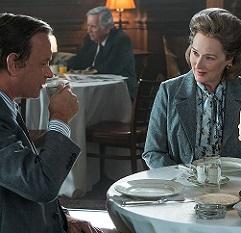Advertisement
Like the title character Jessica Chastain portrayed in last year’s Miss Sloane, the woman she plays in Molly’s Game is driven by fierce ambition and copious amounts of pharmaceuticals. Though the current film is a typically literate effort written and directed by Aaron Sorkin, I can’t help preferring its trashy predecessor.
The main problem: Despite the new flick’s snappy dialogue and intriguing story, it’s hard to care about Molly Bloom. Based on an actual woman who made a fortune organizing high-stakes poker games, Chastain’s Bloom comes across as someone who cares only about success.
To be sure, there’s something admirable about Bloom’s ability to carve a place for herself in a secretive world dominated by men. There’s something even more admirable about her determination to forge her own path after some of those men—especially a poker entrepreneur named Dean (Jeremy Strong) and a movie star known only as Player X (Michael Cera)—attempt to control her.
But “admirable” isn’t the same thing as “likable,” and we really don’t like Molly Bloom. Nor do we understand her, as Sorkin’s dialogue and Chastain’s hard-edged portrayal keep her feelings well-hidden for 95 percent of the overlong running time. That’s a frustration not only for the viewer but for Charlie Jaffrey (a solid Idris Elba), the attorney who reluctantly takes her case after the government charges her with gambling-related crimes.
Making his directorial debut, Sorkin maintains a brisk pace as the story flashes back and forth between the “present” and Bloom’s early years, when she trains to become a competitive skier under the remorseless prodding of her father (Kevin Costner). Sorkin also fills the screen with fancy graphics as he explains the intricacies of downhill skiing and, later, poker.
But neither the flashbacks nor the graphics fully explain what makes Bloom tick. As if to atone for that lapse, an 11th-hour scene offers a simplistic psychological explanation. Dramatically speaking, it’s simultaneously too much, too little and too late.
Rating: 2½ stars (out of 5)
Nationwide opening date: Jan. 5
The editor, the socialite and the Pentagon Papers
Just as Molly’s Game suffers in comparison to Miss Sloane, The Post suffers in comparison to an Oscar-winning tribute to investigative journalism, 2015’s Spotlight. For the most part, though, Steven Spielberg’s latest is a worthy effort.
It starts with a flashback to 1966 Vietnam, where we follow a group of American GIs into the jungle accompanied by one Daniel Ellsberg (Matthew Rhys). Later, after surviving a vicious nighttime skirmish, Ellsberg is asked by Secretary of Defense Robert McNamara (Bruce Greenwood) whether he thinks the U.S. is making any progress in the war. No, he says, and McNamara agrees, though he subsequently tells the press just the opposite.
Still later, Ellsberg is seen stealing classified documents that prove U.S. officials have been lying about the war for decades.
Through all of this, Spielberg and scripters Liz Hannah and Josh Singer skim over one important detail: Just who is Ellsberg, and how did he get access to these secret documents? Otherwise, they do a good job of preparing us for a look back at a groundbreaking event in the history of American journalism: the 1971 release of the so-called Pentagon Papers.
Like Spielberg’s brilliant Lincoln (2012), The Post homes in the intrigue going on behind the scenes. Washington Post editor Ben Bradlee (Tom Hanks) is determined to obtain and publish the documents, not only because they expose officials’ lies about an intractable war but because the Post’s nemesis, The New York Times, got them first. Meanwhile, publisher Kay Graham (Meryl Streep) is nervous that publishing the classified documents would not only land the staff in jail but would threaten the newspaper’s existence by scaring off would-be investors.
The film stumbles toward the end when Spielberg throws in a heavy-handed lecture that tries to make a feminist icon out of Graham, a wealthy socialite who was thrust into the role of publisher following her husband’s death. Streep is as convincing as always, but even she can’t sell this preachy detour.
Otherwise, The Post is a powerful reminder of the crucial job journalists hold in any society, and especially in one whose leaders are all too willing to bend the truth to fit their needs.
Rating: 4 stars (out of 5)
Nationwide opening date: Jan. 12




